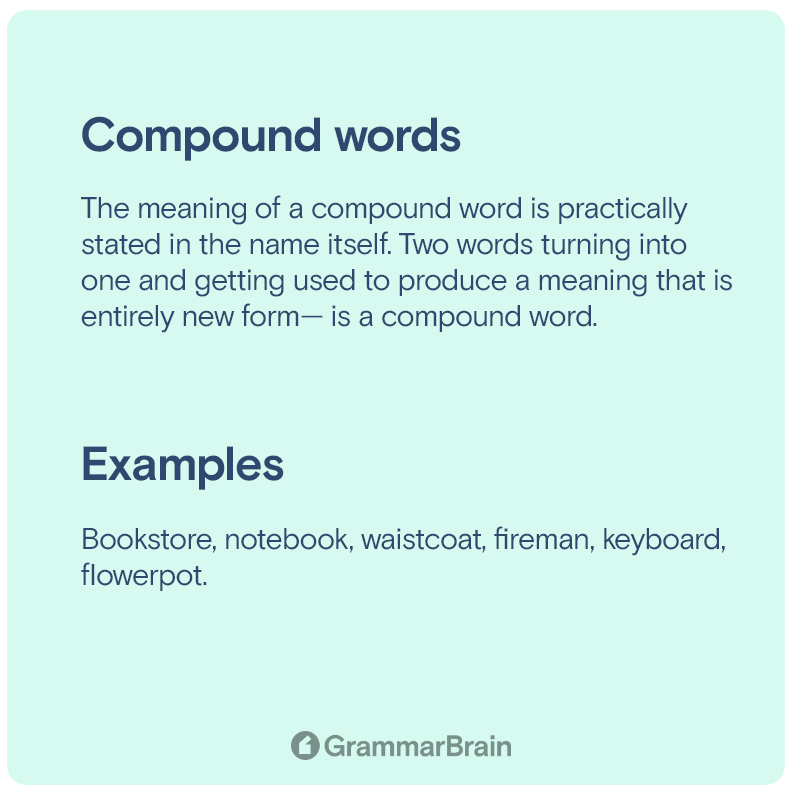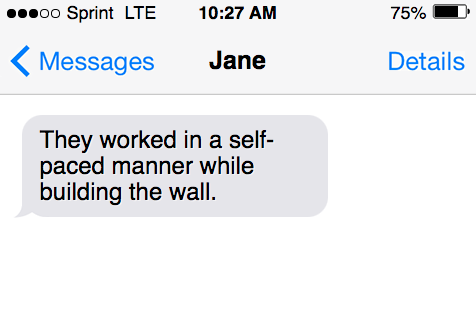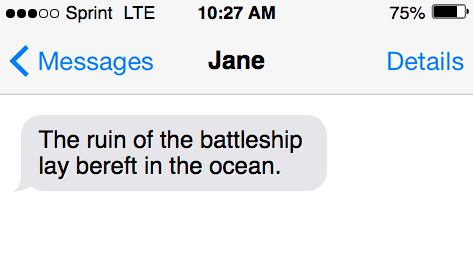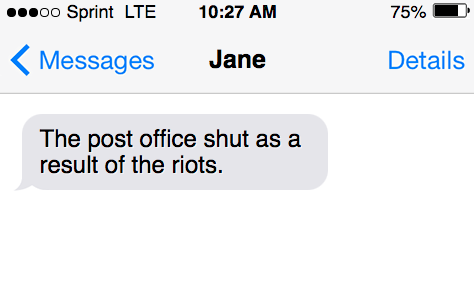Compound words can make the English language fun. But it can also make the English language difficult to comprehend. When a single word means one thing. And then two different words mean something else. Then the combined word means… something new? Unfortunately, that’s correct. And can get confusing when learning English or teaching English.
Learn what compound words are in this grammar worksheet…

What are compound words?
The meaning of a compound word is practically stated in the name itself. Two words turning into one and getting used to produce a meaning that is entirely new form— is a compound word.
A compound word combines two words to create an entirely different meaning. Words that result from compounding can take three forms: open compound words, closed compound words and hyphenated compound words.

Confusion often arises as there are doubts about writing words as a single word, two individual words, or two words with a hyphen.
| Form | Definition |
| Compound words | In linguistics, a compound is a lexeme that consists of more than one stem. Compounding, composition or nominal composition is the process of word formation that creates compound lexemes. Compounding occurs when two or more words or signs are joined to make a longer word or sign. (Wikipedia) |
What are open compound words?
Open compound words are written as two individual words. An excellent example of an open compound word would be ice cream. “Ice” and “cream” mean two entirely different things on their own, but when combine, means something else.
Open compound words are produced when a noun is used with an adjective modifies it. This blend creates a new noun.
It’s incorrect to think you can place a noun with any modifying adjective to form a compound word.
This makes it challenging for most of us to form or identify compound words in English.
Here are some commonly used compound words in English:
- full moon
- dinner table
- living room
- real estate
- coffee mug
It should be noted that adverbs that end with “ly” can also make combinations with other words to form compound words.
Here again, these are written as two individual words:
- newly formed
- largely irrelevant
- early on
- tongue twister
What are closed compound words?
Once you have grasped what open compound words are, you won’t find it hard to understand the concept of closed compound words.
These can confuse people as they often sound like two words that are separate from each other (in speech).
These are two individual words written as a single complete word.
There is no gap (or space) between a closed compound word, so the word “closed” gets used to define it and name it.

These are words that, previously, were not used as single words. Over time, these have become acceptable in the English language.
Here are some examples of closed compound words:
- bookstore
- notebook
- waistcoat
- fireman
- keyboard
- flowerpot
English, as a written and spoken language, is continuously evolving.
How can compound words get created? When words are used more often than they were previously, they are often blended into a single word.
For instance, when the internet initially entered our lives, we spoke about everyone being “on-line.”
Nowadays, using the internet is as common as having a glass of water and is an everyday experience.
As a result, the word “online” is now accepted as a word.
What are hyphenated compound words?
An essential grammar rule to remember is that in the majority of cases, compound adjectives are hyphenated when they occur before the nouns they modify.
They are not hyphenated when they occur after the nouns they modify.
View the examples below:
- An up-to-date outfit
- A long-term plan
- A close-up shot
Now, view these incorrect examples:
- This outfit does not seem up to date.
- This is not a good plan for the long term.
- The shot looks blurred when seen close up.
Hyphens are used with compound words. And when writing, you can get a few reminders of when to use them.
Some writers refuse to use them as they state that the writing becomes “messier” with a hyphen between two words. This is personal preference and should only get used in informal writing tones.
Remember, hyphens work with compound words followed by a noun, like “sun-bleached hair.”
They don’t do well with adjectives modified by their adverbs.
For instance, you can write these things without hyphens:
- lightly salted fish
- poorly crafted work
- distantly related uncles
Hyphens work with compound words that get accompanied by adjectives and end in participles:
- a weird-looking snake
- pan-fried noodles
- jaw-dropping dance moves
Refer to the table for the three compound word forms:
| Types of compound words | Example |
| Open compounds | Ice cream |
| Closed compounds | Doorknob |
| Hyphenated compounds | Long-term |
Compound words (open, closed, and hyphenated) can make the English language challenging to fully comprehend.
Remember, open form compound words are two words which are written independently of one another, separated by space. Compounds verbs are words which describe an action. Unlike a regular verb, a compound verb is made up of two words.
| Individual word | Individual word | Compound word = new meaning |
| Snow | Man | Snowman |
| Star | Fish | Starfish |
| Cup | Cake | Cupcake |
| Rain | Coat | Raincoat |
| Lip | Stick | Lipstick |
Examples of compound words
It’s best to see how compound words work in regular sentences. They’ll be easy to denote as they take two words and combine them into a single word—resulting in an entirely new meaning.
Examples of compound words in sentences
Here are examples of how compound words are used in English in sentences you may be familiar with:
- The baseball hit the pitch with a loud thud.
- Her lifestyle includes going on at least two cruises in a year.
- The post office shut as a result of the discourse.
- The backyard, filled with auburn leaves in the autumn, looked resplendent.
- Mary’s shoelace became undone after her run.
- The double-decker sped at breakneck speed down the busy street.
- His self-esteem hit him as the professor scolded him in front of his classmates.
- They worked in a self-paced manner while building the wall.
- Disappointed with his poor performance, the runner-up in the competition cried a lot.
- The ruin of the battleship lay bereft in the ocean.
Compound words list
Here is a list of commonly used compound words.
You may find that you recognize some you use in everyday speech and writing:
- afterthought
- inside
- mailbox
- basketball
- skateboard
- moonlight
- sunshine
- sweet tooth
- half-sister
- grand jury
- cave in
- railroad
- airmail
- backfire
- background
- blackmail
- crossover
- egghead
- highway
- slumlord
- timepiece
- upturn
- watermark
- warlord
- upbeat
- living room
- snow cone
- apple pie
- table tennis
- check-in
- seventy-two
- two-fold
- high school
- half brother
- one-half
- over the counter
- on-campus (as in on-campus accommodation)
- family-run
- full-time employee
Compound words for kindergarten children
When we teach kids a new concept, we tend to bring ourselves to a level they will understand. Consequently, concerning compound words, several exercises are used in to help children comprehend them.

It’s best to start with common words that children can see regularly. The following compound word list will display this:
- anymore
- anything
- bathrobe
- football
- bathtub
- butterfly
- dishwasher
- carpet
- doorbell
- earache
- everybody
- footprint
- grandmother
- homework
- outside
- meatball
- ice cream
- spaceship
- teapot
- racing car
- junior school
- dinner table
- far-off
- close-up
- pancake
- cardboard
- jogging pants
- school bus
- rainbow
- toothbrush
- airplane
- strawberry
- starfish
- ponytail
- outer space
- hot dog
- mailbox
- hamburger
- spaceship
Kids can learn things much faster than adults. Children tend to love compound words as the comprehension of the single word and the several ways it can get used rather than learning entirely new parts of speech.
Full list of compound words
Here is a full list of compound words.
A-E
- Aboveboard
- Afterbirth
- Afterburner
- Afterglow
- Afterimage
- Afterlife
- Aftermath
- Afternoon
- Airbrush
- Aircraft
- Airfield
- Airlift
- Airline
- Airliner
- Airmail
- Airman
- Airmen
- Airplane
- Airport
- Airship
- Airtime
- Allover
- Allspice
- Alongside
- Also
- Another
- Anybody
- Anyhow
- Anymore
- Anyone
- Anyplace
- Anything
- Anytime
- Anyway
- Anywhere
- Armchair
- Armpit
- Around
- Arrowhead
- Ashtray
- Authorship
- Babysit
- Babysitter
- Backache
- Backbite
- Backbone
- Backbreaker
- Backdrop
- Backfield
- Backfire
- Background
- Backhand
- Backlash
- Backlog
- Backpack
- Backside
- Backslap
- Backslide
- Backspace
- Backspin
- Backstage
- Backstop
- Backstretch
- Backstroke
- Backtrack
- Backward
- Ballpark
- Ballroom
- Bankbook
- Bankroll
- Baseball
- Basketball
- Beachcomb
- Became
- Because
- Become
- Bedbug
- Bedclothes
- Bedrock
- Bedroll
- Bedroom
- Bellbottom
- Bellboy
- Bellhop
- Below
- Birthday
- Blackball
- Blackberries
- Blackbird
- Blackboard
- Blackjack
- Blacklist
- Blackmail
- Blackout
- Blacksmith
- Blacktop
- Bluebell
- Blueberry
- Bluebird
- Bluefish
- Bluegrass
- Blueprint
- Boardwalk
- Bodyguard
- Bodywork
- Boldface
- Bookbinder
- Bookcase
- Bookend
- Bookkeeper
- Booklet
- Bookmark
- Bookmobile
- Bookseller
- Bookshelf
- Bookstore
- Bookworm
- Bootstrap
- Bowtie
- Brainchild
- Brainstorm
- Brainwash
- Bugspray
- Bushfire
- Buttercup
- Butterfat
- Butterfingers
- Butterflies
- Buttermilk
- Butternut
- Butterscotch
- Bypass
- Cabdriver
- Cancan
- Candid
- Candlelight
- Candlestick
- Cannot
- Cardboard
- Cardsharp
- Cardstock
- Carefree
- Caretaker
- Careworn
- Carfare
- Cargo
- Carhop
- Carload
- Carpetbagger
- Carpool
- Carport
- Carrack
- Carryall
- Carsick
- Cartwheel
- Carwash
- Cattail
- Catwalk
- Caveman
- Centercut
- Cheeseburger
- Cheesecake
- Classmate
- Clockwise
- Coffeemaker
- Comeback
- Comedown
- Commonplace
- Commonwealth
- Cornball
- Cornmeal
- Cornstalk
- Cornwall
- Cottonmouth
- Cottontail
- Cottonwood
- Countdown
- Counterattack
- Counterbalance
- Counterclockwise
- Counterintelligence
- Countermeasure
- Counteroffensive
- Counterpane
- Counterpart
- Counterpoint
- Counterpoise
- Courthouse
- Courtroom
- Courtyard
- Crewcut
- Crossbow
- Crossbreed
- Crosscut
- Crossover
- Crossroad
- Crosstown
- Crosswalk
- Crossword
- Cupcake
- Dairymaid
- Daisywheel
- Daybed
- Daybook
- Daybreak
- Daydream
- Daylight
- Daytime
- Deadend
- Deadline
- Dishcloth
- Dishpan
- Dishwasher
- Dishwater
- Diskdrive
- Dogwood
- Doorstop
- Downbeat
- Downunder
- Drawbridge
- Driveway
- Duckbill
- Duckpin
- Earache
- Eardrop
- Eardrum
- Earring
- Earthbound
- Earthquake
- Earthward
- Earthworm
- Egghead
- Eggshell
- Elsewhere
- Everyone
- Everything
- Eyeball
- Eyeballs
- Eyebrow
- Eyecatching
- Eye-catching
- Eyeglasses
- Eyelash
- Eyelid
- Eyesight
- Eyewitness
F-N
- Fatherland
- Fatherless
- Firearm
- Fireball
- Fireboat
- Firebomb
- Firebox
- Firebreak
- Firecracker
- Firefighter
- Fireflies
- Firehouse
- Fireman
- Fireproof
- Firewater
- Fireworks
- Fishbowl
- Fisherman
- Fisheye
- Fishhook
- Fishlike
- Fishmonger
- Fishnet
- Fishpond
- Fishtail
- Flashlight
- Football
- Foothill
- Foothold
- Footlights
- Footlocker
- Footnote
- Footpath
- Footprints
- Footrest
- Forbearer
- Forbid
- Forearm
- Forebear
- Forecast
- Forecastle
- Foreclose
- Foreclosure
- Foredoom
- Forefather
- Forefinger
- Forefront
- Forehand
- Forehead
- Foreleg
- Foreman
- Foremost
- Forepaws
- Forerunner
- Foresee
- Foresight
- Forestall
- Forestland
- Forever
- Forget
- Forgive
- Forklift
- Format
- Fortnight
- Freelance
- Friendship
- Fruitcup
- Gearshift
- Glassmaking
- Goodbye
- Goodnight
- Grandaunt
- Grandchild
- Grandchildren
- Granddaughter
- Grandfather
- Grandmaster
- Grandmother
- Grandnephew
- Grandnieces
- Grandparent
- Grandson
- Grandstand
- Granduncle
- Grasshopper
- Graveyard
- Gumball
- Haircut
- Hamburger
- Hammerhead
- Hamstring
- Handball
- Handbook
- Handcuff
- Handgun
- Handmade
- Handout
- Headache
- Headdress
- Headhunter
- Headlight
- Headline
- Headquarters
- Hedgehop
- Heirloom
- Hellcat
- Hellhole
- Helpmate
- Helpmeet
- Hemstitch
- Henceforth
- Henchman
- Henpeck
- Hereabout
- Hereafter
- Hereby
- Herein
- Hereof
- Hereupon
- Herself
- Highball
- Highchair
- Highland
- Highlight
- Highway
- Himself
- Homemade
- Homesick
- Hometown
- Honeybee
- Honeycomb
- Honeydew
- Honeymoon
- Honeysuckle
- Hookup
- Hookworm
- Horseback
- Horsefly
- Horsehair
- Horseplay
- Horsepower
- Horseradish
- Horseshoe
- Houseboat
- Housecoat
- Household
- Housekeeper
- Housetop
- Housewife
- Housework
- However
- Ideal
- Inchworm
- Income
- Indoors
- Inflow
- Infold
- Infuse
- Infusion
- Inhale
- Inkblot
- Inkwell
- Inland
- Inmate
- Inpatient
- Inroad
- Inset
- Inside
- Intake
- Ironwork
- Itself
- Jackpot
- Jackson
- Jailbait
- Jailbird
- Jawbone
- Jawbreaker
- Jaywalk
- Jellybean
- Jellyfish
- Jerkwater
- Jerrybuild
- Jetliner
- Jetport
- Jigsaw
- Jimsonweed
- Jitterbug
- Jobholder
- Johnnycake
- Jumpshot
- Keepsake
- Keyboard
- Keyhole
- Keynote
- Keypad
- Keypunch
- Keystone
- Keystroke
- Keyway
- Keyword
- Landmark
- Landslide
- Landward
- Lapland
- Lapwing
- Larkspur
- Laughingstock
- Lawgiver
- Lawmaker
- Lawsuit
- Layman
- Layoff
- Layout
- Layover
- Leapfrog
- Lifeblood
- Lifeboat
- Lifeguard
- Lifelike
- Lifeline
- Lifelong
- Lifesaver
- Lifetime
- Lifework
- Lighthouse
- Limelight
- Limestone
- Lipstick
- Longhand
- Longhorn
- Longhouse
- Lukewarm
- Mailbox
- Mainland
- Mainline
- Mainspring
- Mainstream
- Makeup
- Matchbox
- Meadowland
- Meantime
- Meanwhile
- Moonbeam
- Moonlight
- Moonlit
- Moonscape
- Moonshine
- Moonstone
- Moonstruck
- Moonwalk
- Moreover
- Mothball
- Motherhood
- Motorcycle
- Nearby
- Necktie
- Nevermore
- Newborn
- Newfound
- Newsboy
- Newsbreak
- Newscast
- Newscaster
- Newsdealer
- Newsletter
- Newsman
- Newsmen
- Newspaper
- Newsperson
- Newsprint
- Newsreel
- Newsroom
- Newsstand
- Newsworthy
- Nightfall
- Nobody
- Noisemaker
- Northeast
- Northwest
- Notebook
- Notepad
- Noteworthy
- Nowhere
- Nursemaid
- Nutcracker
O-T
- Oneself
- Onetime
- Overabundance
- Overboard
- Overcoat
- Overflow
- Overland
- Overpass
- Overshoes
- Pacemaker
- Pancake
- Parkway
- Passbook
- Passkey
- Passover
- Passport
- Password
- Pasteboard
- Patchwork
- Pathfinder
- Pathway
- Pawnbroker
- Pawnshop
- Paycheck
- Payload
- Paymaster
- Payoff
- Payroll
- Peppermint
- Pickup
- Pineapple
- Pinhole
- Pinpoint
- Pinstripe
- Pinup
- Pinwheel
- Playback
- Playboy
- Playground
- Playhouse
- Playmate
- Playthings
- Ponytail
- Popcorn
- Postcard
- Pothole
- Proofread
- Racquetball
- Railroad
- Railway
- Rainbow
- Raincheck
- Raincoat
- Raindrop
- Rainfall
- Rainmaker
- Rainstorm
- Rainwater
- Ratline
- Ratsbane
- Rattlesnake
- Rattletrap
- Rawboned
- Rawhide
- Readywitted
- Rearmost
- Rearrange
- Rearward
- Redcap
- Redcoat
- Reddish
- Redhead
- Repairman
- Riverbank
- Riverbanks
- Rubberband
- Sailboat
- Salesclerk
- Sandbox
- Sandlot
- Sandstone
- Sandwich
- Saucepan
- Scapegoat
- Scarecrow
- Schoolbook
- Schoolboy
- Schoolbus
- Schoolhouse
- Schoolmate
- Schoolroom
- Schoolwork
- Seashore
- Setback
- Setoff
- Shadyside
- Sharecropper
- Sharpshooter
- Sheepskin
- Shipbottom
- Shipbuilder
- Shipload
- Shipwreck
- Shipyard
- Shoelace
- Shoemaker
- Shopkeeper
- Shortbread
- Shortcake
- Shotgun
- Showboat
- Showoff
- Showplace
- Showroom
- Sideburns
- Sidecar
- Sidekick
- Sideshow
- Sidewalk
- Silversmith
- Sisterhood
- Sixfold
- Skateboard
- Skintight
- Skylark
- Skylight
- Skyscraper
- Slapstick
- Slowdown
- Slumlord
- Snakeskin
- Snowball
- Snowbank
- Snowbird
- Snowdrift
- Snowshoe
- Snowshovel
- Snowstorm
- Soapstone
- Softball
- Software
- Somebody
- Someday
- Somehow
- Someone
- Someplace
- Something
- Sometime
- Sometimes
- Someway
- Somewhat
- Somewhere
- Soundproof
- Southeast
- Southwest
- Soybean
- Spacesuit
- Spacewalk
- Spearmint
- Speedboat
- Spillway
- Spokesperson
- Springtime
- Stagehand
- Standby
- Standoff
- Standout
- Standpipe
- Standpoint
- Standstill
- Starfish
- Steamboat
- Steamship
- Stepson
- Stickup
- Stockroom
- Stonewall
- Stoplight
- Stopwatch
- Storerooms
- Strawberry
- Streetcar
- Stronghold
- Subway
- Sunbaked
- Sunbathe
- Sunday
- Sundial
- Sundown
- Sunfish
- Sunflower
- Sunglasses
- Sunlit
- Sunray
- Sunrise
- Sunroof
- Sunshine
- Suntan
- Sunup
- Supercargo
- Supercharge
- Supercool
- Superego
- Superfine
- Supergiant
- Superhero
- Superhighways
- Superhuman
- Superimpose
- Superman
- Supermarket
- Supermen
- Supernatural
- Superpower
- Superscript
- Supersensitive
- Supersonic
- Superstar
- Superstrong
- Superstructure
- Supertanker
- Superweapon
- Superwoman
- Sweetheart
- Sweetmeat
- Tablecloth
- Tablespoon
- Tabletop
- Tableware
- Tadpole
- Tagalong
- Tailbone
- Tailcoat
- Tailgate
- Taillight
- Taillike
- Tailpiece
- Tailspin
- Takeoff
- Takeout
- Takeover
- Talebearer
- Taleteller
- Tapeworm
- Taproom
- Taproot
- Target
- Taskmaster
- Tattletale
- Taxicab
- Taxpayer
- Teacup
- Teammate
- Teamwork
- Teapot
- Teardrop
- Teaspoon
- Teenager
- Telltale
- Tenderfoot
- Tenderhearted
- Tenderloin
- Tenfold
- Textbook
- Themselves
- Therefore
- Throwaway
- Throwback
- Thunderbird
- Thunderbolt
- Thundershower
- Thunderstorm
- Timekeeper
- Timepieces
- Timesaving
- Timeshare
- Timetable
- Today
- Together
- Toolbox
- Toothbrush
- Toothpaste
- Toothpick
- Touchdown
- Township
- Turnabout
- Turnaround
- Turnbuckle
- Turncoat
- Turndown
- Turnkey
- Turnoff
- Turnover
- Turntable
- Typewriter
T-Z
- Underachieve
- Underact
- Underage
- Underarm
- Underbelly
- Underbid
- Undercharge
- Underclothes
- Undercover
- Undercurrent
- Undercut
- Underdevelop
- Underdog
- Underesimate
- Underestimate
- Underexpose
- Underfeed
- Underfinance
- Underfoot
- Underfur
- Undergarment
- Undergird
- Undergo
- Undergraduate
- Underground
- Undergrowth
- Underhand
- Underhanded
- Underlayer
- Underlie
- Upbeat
- Upbringing
- Upcoming
- Update
- Updraft
- Upend
- Upgrade
- Upheaval
- Upheld
- Uphill
- Uphold
- Upkeep
- Upland
- Uplift
- Uplink
- Upload
- Upmarket
- Upon
- Uppercase
- Upperclassman
- Uppercut
- Uppermost
- Upright
- Uprising
- Upriver
- Uproar
- Uproot
- Upset
- Upshot
- Upside
- Upstage
- Upstairs
- Upstanding
- Upstart
- Upstate
- Upstream
- Upsurge
- Upswing
- Uptake
- Upthrust
- Uptight
- Uptime
- Uptown
- Upturn
- Upward
- Upwind
- Waistband
- Waistcoat
- Waistline
- Walkout
- Walkways
- Wallboard
- Walleyed
- Wallflower
- Wallpaper
- Wanderlust
- Wardroom
- Warehouse
- Warfare
- Warhead
- Warlike
- Warlord
- Warmblooded
- Warmhearted
- Warmonger
- Warpath
- Warplanes
- Warship
- Wartime
- Washboard
- Washbowl
- Washcloth
- Washout
- Washroom
- Washstand
- Washtub
- Wastebasket
- Wasteland
- Wastepaper
- Wastewater
- Watchband
- Watchcase
- Watchdog
- Watchmaker
- Watchman
- Watchtower
- Watchword
- Watercolor
- Watercooler
- Watercraft
- Waterfall
- Waterfowl
- Waterfront
- Waterline
- Waterlog
- Watermark
- Watermelon
- Waterpower
- Waterproof
- Waterscape
- Watershead
- Waterside
- Waterspout
- Watertight
- Waterway
- Waterwheel
- Waterworks
- Wavelength
- Wavelike
- Waxwork
- Waybill
- Wayfarer
- Waylaid
- Wayside
- Wayward
- Weathercock
- Weatherman
- Weatherproof
- Weekday
- Weekend
- Weeknight
- Whatever
- Whatsoever
- Wheelbarrow
- Wheelbase
- Wheelchair
- Wheelhouse
- Whitecap
- Whitefish
- Whitewall
- Whitewash
- Widespread
- Wipeout
- Without
- Woodshop
- Workplace
- Worldwide
- Wrongdoing
FAQs
Does a compound noun get a hyphen?
No, unlike a hyphenated compound word, a compound noun does not get a hyphen. And joins the two separate words to create a new words to determine its own meaning. When the words combine, it can be something brand new that two separate words don’t mean.
What are hyphenated compound words?
Mother-in-law, sister-in-law.
How many types of compound words are there?
Three types: closed compound words, open compound words and hyphenated compound words.
References:
- Compound Words: Open, Closed, or Hyphenated? | Grammarly
- What Are Compound Words? – Meaning & Examples – Video & Lesson Transcript | Study.com
- Examples of Compound Words by Type (yourdictionary.com)
- Compounds – English Grammar Today – Cambridge Dictionary
Inside this article
Fact checked:
Content is rigorously reviewed by a team of qualified and experienced fact checkers. Fact checkers review articles for factual accuracy, relevance, and timeliness. Learn more.
Core lessons
Glossary
- Abstract Noun
- Accusative Case
- Anecdote
- Antonym
- Active Sentence
- Adverb
- Adjective
- Allegory
- Alliteration
- Adjective Clause
- Adjective Phrase
- Ampersand
- Anastrophe
- Adverbial Clause
- Appositive Phrase
- Clause
- Compound Adjective
- Complex Sentence
- Compound Words
- Compound Predicate
- Common Noun
- Comparative Adjective
- Comparative and Superlative
- Compound Noun
- Compound Subject
- Compound Sentence
- Copular Verb
- Collective Noun
- Colloquialism
- Conciseness
- Consonance
- Conditional
- Concrete Noun
- Conjunction
- Conjugation
- Conditional Sentence
- Comma Splice
- Correlative Conjunction
- Coordinating Conjunction
- Coordinate Adjective
- Cumulative Adjective
- Dative Case
- Determiner
- Declarative Sentence
- Declarative Statement
- Direct Object Pronoun
- Direct Object
- Diction
- Diphthong
- Dangling Modifier
- Demonstrative Pronoun
- Demonstrative Adjective
- Direct Characterization
- Definite Article
- Doublespeak
- False Dilemma Fallacy
- Future Perfect Progressive
- Future Simple
- Future Perfect Continuous
- Future Perfect
- First Conditional
- Irregular Adjective
- Irregular Verb
- Imperative Sentence
- Indefinite Article
- Intransitive Verb
- Introductory Phrase
- Indefinite Pronoun
- Indirect Characterization
- Interrogative Sentence
- Intensive Pronoun
- Inanimate Object
- Indefinite Tense
- Infinitive Phrase
- Interjection
- Intensifier
- Infinitive
- Indicative Mood
- Participle
- Parallelism
- Prepositional Phrase
- Past Simple Tense
- Past Continuous Tense
- Past Perfect Tense
- Past Progressive Tense
- Present Simple Tense
- Present Perfect Tense
- Personal Pronoun
- Personification
- Persuasive Writing
- Parallel Structure
- Phrasal Verb
- Predicate Adjective
- Predicate Nominative
- Phonetic Language
- Plural Noun
- Punctuation
- Punctuation Marks
- Preposition
- Preposition of Place
- Parts of Speech
- Possessive Adjective
- Possessive Determiner
- Possessive Case
- Possessive Noun
- Proper Adjective
- Proper Noun
- Present Participle
- Prefix
- Predicate



